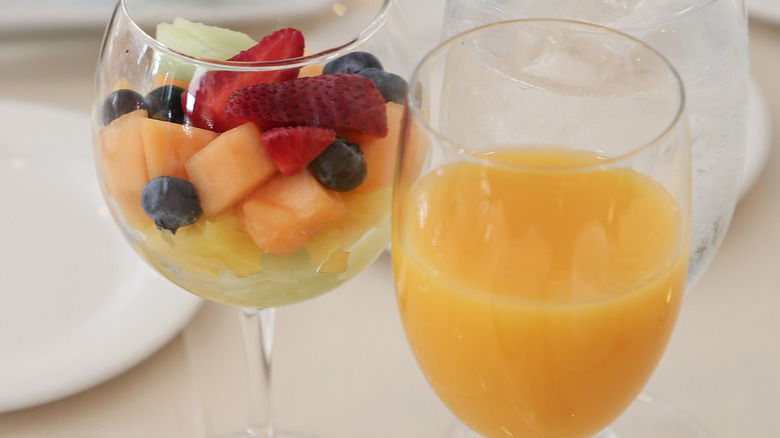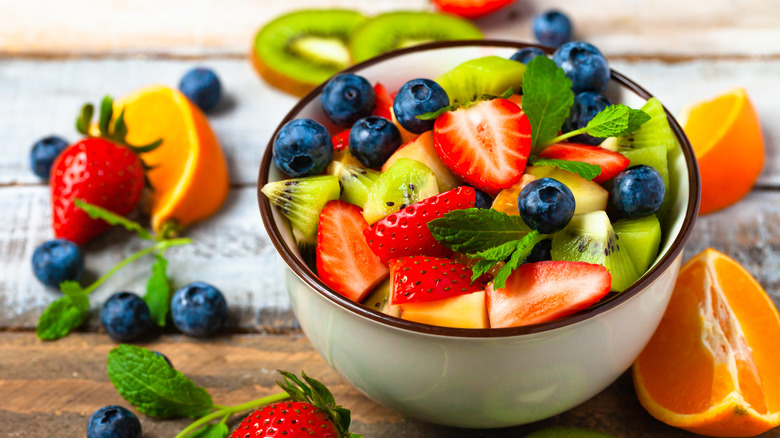New Study Reveals Eating These Foods Daily May Help With Memory Loss
Turns out there is truth to the idea of brain foods. According to findings published in a new American Academy of Neurology study, incorporating certain foods into an eating plan may help offset cognitive issues like memory loss as we age. In particular, foods that are helpful are those high in flavonoids, a type of naturally-occurring compound found in plants that also offer antioxidants. The long-range study, that followed the eating habits of nearly 50,000 women with an average age of 48 and nearly 28,000 men around age 51 over the course of 20 years, found that, "at least half a serving per day of foods high in flavonoids like strawberries, oranges, peppers, and apples may have a 20% lower risk of cognitive decline."
According to the study's author Walter Willett, MD, DrPH at Harvard University, "There is mounting evidence suggesting flavonoids are powerhouses when it comes to preventing your thinking skills from declining as you get older. ... Our results are exciting because they show that making simple changes to your diet could help prevent cognitive decline." In particular the study encourages the idea that "it's never too late to start," says Willett, who adds, "We saw those protective relationships whether people were consuming the flavonoids in their diet 20 years ago, or if they started incorporating them more recently."
And a half serving of foods, like oranges and orange juice, grapefruit and grapefruit juice, peppers, celery, apples, and pears seems like a reasonable addition to any eating plan. These foods tend to be available year-round and can be incorporated at almost any meal, in a variety of ways — from that glass of orange juice at breakfast to some pears as an afternoon snack.
Why plant foods are great for helping fight memory loss
When it comes to healthy eating, there is strong evidence that foods can benefit your health in positive ways — and the American Academy of Neurology study is further proof. Supporting this theory, an article from the Mayo Clinic says you can "maximize memory function with a nutrient-rich diet." Mayo Clinic's recommendations for a "brain-healthy diet" are similar and also include various foods that are rich in antioxidants.
Antioxidant- and flavonoid-rich foods like fruits and vegetables are a top choice because plant foods have naturally occurring nutrients the body needs to function. Berries, the Clinic says, are a rich source of anthocyanin and other flavonoids. Another good one is grapes, which are high in resveratrol, a compound known for its memory-boosting capabilities. There's also dark, leafy greens that have vitamin C and folate, the latter of which works to decrease inflammation and improve blood circulation — including to the brain.
While it is best to always discuss food choices with medical professionals, it seems that eating the rainbow is not just a feast for the eyes. All those antioxidants on the plate might leave a lasting, memorable impression for years to come, too.

